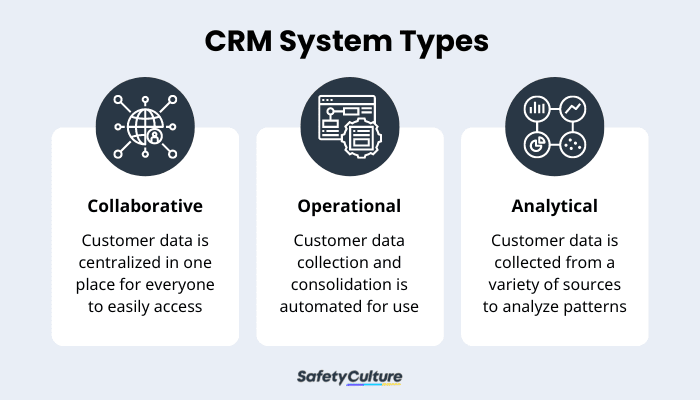A Guide to Customer Relationship Management
Know more about customer relationship management and the benefits having one can bring your business.

Published 13 Jun 2024
Article by
4 min read
What is Customer Relationship Management (CRM)?
Customer Relationship Management (CRM) refers to the set of practices and techniques businesses use to improve and retain their relationships with their customers. CRM techniques are focused on managing the relationship between the company and the customer from the beginning prospecting stage, through the sales phase, and continuously throughout the expansion and healthy growth of the customer relationship.
A common way of carrying out a CRM system is by logging details from every email, phone call, and face-to-face meeting with the customer in the CRM software so that the entire team can review these notes before the next call and interaction. This can be product feedback of what they like or dislike or even need in the future from the product that can be used to mesh with other customers.
What is its Importance?
A CRM system, for many businesses, is considered to be an essential part of ensuring long-term success and connections with customers. At its core, a CRM system collects customer information to be captured in one database where all information would live and be the source of truth. Some customer data essential to a CRM system are customers’:
Personal details
Buying habits
Past purchases
Interactions with the company
Place or platform of purchase
This is important so that you don’t have different sales, customer success, and customer engagement staff duplicating each other’s work and misunderstanding each other on important talking points. Such situations end up giving the customer a bad experience as you are not understanding each other.
For example, if you didn’t have a CRM, you may end up with a situation wherein one salesperson from your team reaches out to an existing customer alongside another salesperson, but without considering the customer’s profile, needs, and data. In this situation, it is likely the customer will not be interested in your company any longer, or they may feel bothered instead.
Without a CRM system, you can also potentially lose existing customers. By having a customer database in your CRM system, you can know what items or services to suggest and offer to your customers to address their needs. Similarly, a CRM system can also help predict possible trends in your business based on how your customers’ needs and wants are changing, and how your company responds to them.
With a digital solution, CRM systems become more powerful as it allows users to access all the necessary data in one place in real time, as well as analyze them. Not only do you avoid work, but with the help of a digital tool, you can also better store your data for longer periods, ensuring nothing is lost in paperwork or mishandling.
Create Your Own CRM Checklist
Customer Relationship Management System Types

There are many different types of CRM systems. These can be homegrown with Access and Excel products to enterprise tools that are robust and built for a purpose, such as Salesforce. You can also integrate all these software into one platform, such as SafetyCulture (formerly iAuditor), for easier access and management. Finding what works for your business, your budget, and your customer base is key to the success of your CRM.
The most common types of CRM systems that work for many are the following:
Collaborative — Where customer data is centralized in one place so marketing professionals and the sales team can access it together and collaborate
Operational — Where the act of consolidating customer data is automated with computers and applications to give marketing professionals and salespeople more time to improve their connections with customers
Analytical — Where customer information comes from a variety of sources to view and understand patterns that may help improve customer satisfaction and relations, as well as create new products, predict trends, and future budgeting plans
Creating and Managing a CRM System with a Digital Auditing Tool
What is SafetyCulture?
To create a CRM system fit for your needs or maintain and improve your existing one, consider using a digital auditing tool to help you out. A digital auditing tool like SafetyCulture can help you collect data, manage them, and use them for future CRM activities to help you improve your business through the help of intuitive and easy-to-use checklists and templates.
Download free CRM-related checklist templates from the Public Library to get started, or create your own from scratch. You also have the option to convert your existing PDF, Word, Excel, and PowerPoint CRM checklists for SafetyCulture, ensuring all your data stays in the cloud and can be accessed anytime and anywhere.
Using a tool like SafetyCulture to capture customer data that can flow into your CRM through integrations and an open API makes the touchpoints much less manual. This process will also allow your data to be standardized and uniform with the information that is mandatory to capture before input.
You can also use SafetyCulture to:
Store and sort CRM-related documents with the help of folders and bookmarks
Share documents with your team and organization with varying levels of access by modifying their access controls according to their needs
Report problems in your CRM database and system by raising issues in-app as they happen
Address points of concern by assigning actions to those who can correct it
Generate analytical reports to better understand your customers and their needs based on the data you’ve gathered
FAQs about Customer Relationship Management
Authors
Related articles
Operations
Business Processes

Understanding the Importance of Process Automation Reliability
Learn how reliable process automation is key to safe, consistent operations and how it minimizes quality and compliance risks.
Logistics
Operations

Transportation and Logistics: What’s the Difference?
Learn about the importance of transport and logistics within the supply chain and how it is used in business operations.
Logistics
Operations

An Overview of Transport Network Analysis
Learn about transport network analysis and how network-level insight improves reliability and reduces operational risk.